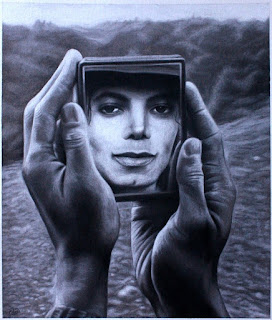A
microaggression is something that is said by a well-intentioned individual that
at its core is offensive. An example
from this week’s resources was of an Asian man who got into a cab. After having a conversation with his cab
driver, the driver complimented the man on how good his English was. The Asian man said, well, I would hope so, I
am from Portland, OR. While the
intentions of the cab driver were good, his compliment was actually implying
that this man was not from, nor did he belong in the United States. He judged that because this man was Asian, he
should have an accent because he did not grow up here. This unintentionally alienated the man. (Laureate Education, Inc., 2011)
I
have to say that finding microaggressions has not been the easiest of
tasks. I am not sure if that is because
I have not experienced them, or if it is because I am blind to them. I would hope that it is the former. If I think back, I remember a family that was
in my classroom some time ago. The
mother was an odd individual that acted as if the world owned her
something. She was very money-centered,
and frequently talked about how much the things she had cost. They eventually moved out of town, and in the
process she talked about how expensive their new house was ($500K) and that she
really didn’t know if they would be able to afford a maid or not. Now, as early childhood educators, we know that
we don’t make a whole lot of money – heck, the whole world knows that we don’t
make a lot of money. At this point in
the conversation, I felt confused as to why she was ranting to someone who
makes substantially less than her about not being able to have a maid. She continued on, talking about how she just doesn’t
know how people live without having a maid and how sad that must be to have to
come home from work and still have to clean.
I wanted to smack her! But, I did
not. I felt targeted as less of a
person. But the worse part, was that I
don’t think she understood what she was saying or how I might feel. She wasn’t intentionally bragging about her
income, but that was the way it came across.
This
same lady would also talk about how important her job was, as a doctor, again,
making me feel as if she thought my job was NOT important. She also asked me one time to help her with
something. She was trying to get her
medical students to understand probability, so she read her explanation to me,
and asked if I understood it. I
did. She then said “good, I figured if I
read it to you and you understood it, then my medical students would definitely
understand it.” She was implying that she
was way smarter than me, as were her students.
This ticked me off because I am a very smart person. I was a mostly straight A student in high
school, graduated with my bachelors while maintaining a 3.55 GPA, and had just
begun my Master’s program. I am also
very mathematically minded, and probably understand things like probability
better than most of her students.
I
know my experiences with microaggressions were not centered around race, but
felt just as real to me. Delving deeper
into microaggressions this week has taught me a lot. We need to be more mindful of the things we
say to people. It is in these small
comments that we make in passing that we do the most damage. We alienate and hurt other people by making
them feel inferior.
Reference
Laureate Education, Inc. (Producer). (2011). Microaggressions in Everyday Life [Video webcast], Interview
with Dr. Derald
Wing Sue. Retrieved on May 13, 2013 from https://class.waldenu.edu
